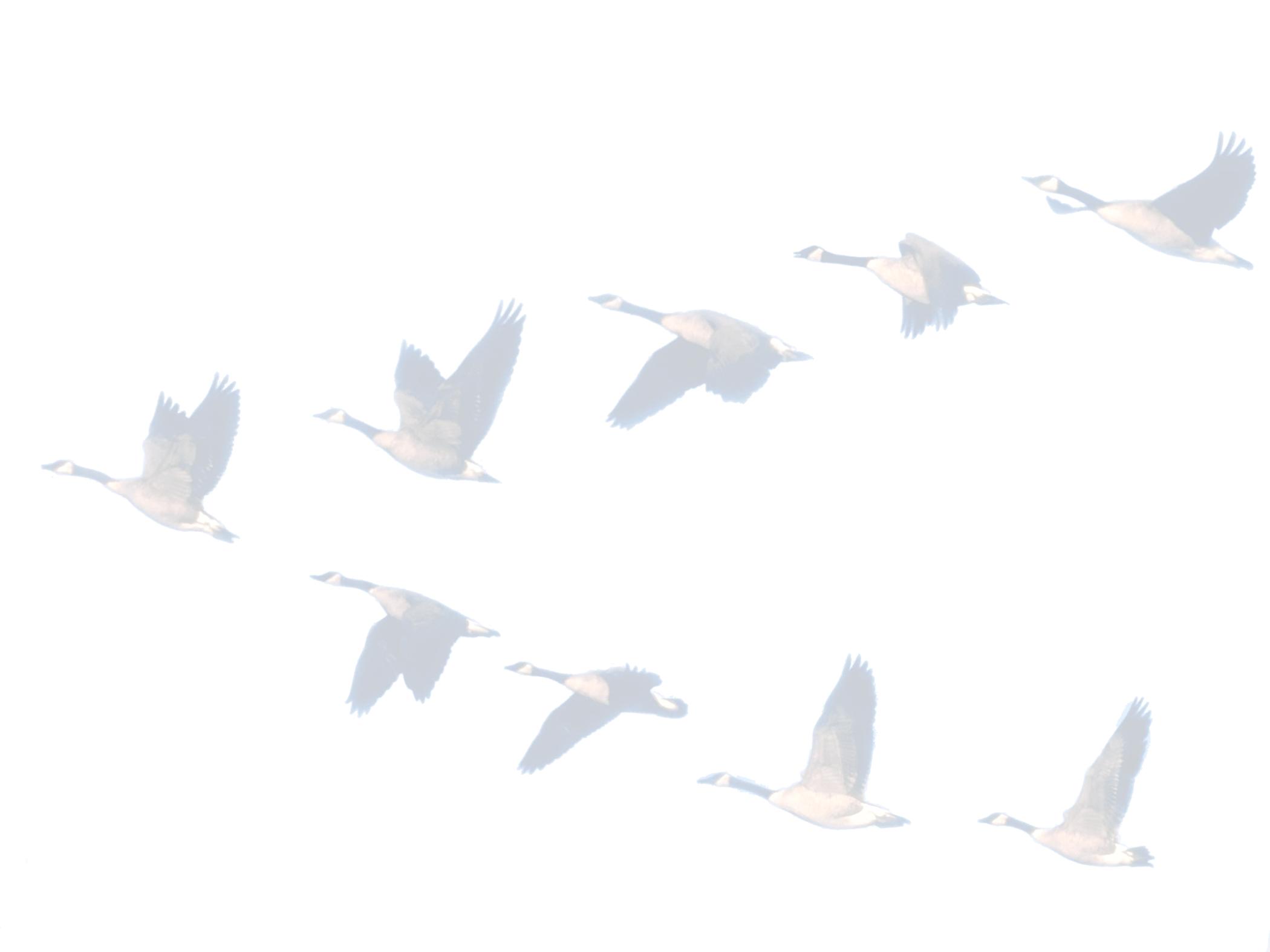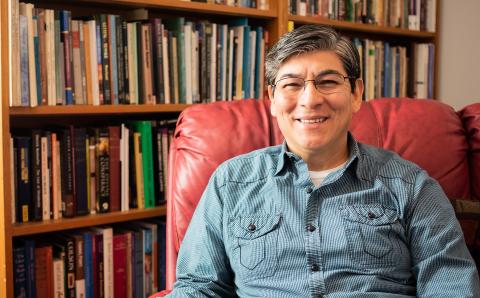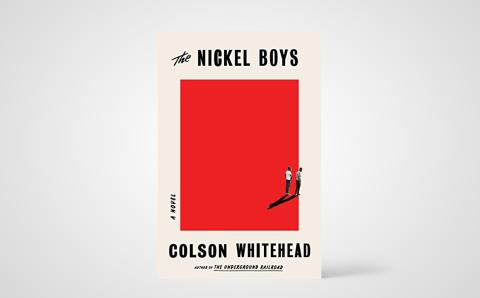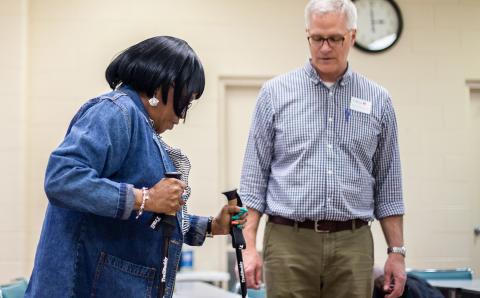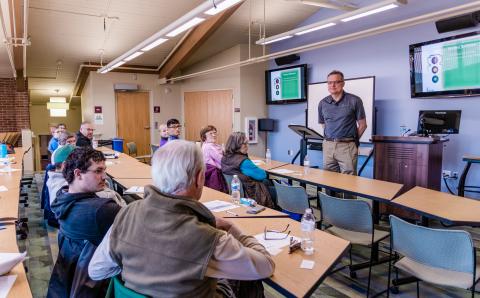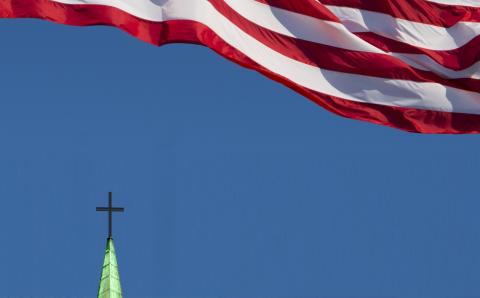In September 2018, 10 church planters and missional leaders from around North America gathered at the Abbey of Genesee near Rochester, N.Y. for a spiritual retreat that included 36 hours of silence. This article is based on journal entries written during those hours.
I’ve had the window in my room open for most of the last day. I opened it to let in the fresh air, but it has also brought in sounds from outside. One sound in particular has me thinking of the past while another has me thinking of the future.
The first sound, a car on a country road, is initially like nothing more than a gentle breeze blowing through the leaves. Yet it eventually builds to a cascade of sound as the car passes close by before fading off again until it is almost imperceptible, finally vanishing. This sound is the sound of my youth, and this location—a farmhouse in a cluster of trees surrounded by corn, wheat, and soybean fields—is much like my boyhood home in Graafschap, Mich.
The second sound is always in the distance, though sometimes deafeningly close like the passing cars. Geese are flying south, honking as they go. While the monks sing in a measured, harmonious, almost still way as they break from their work five times a day for services, the geese, in contrast, sing their song in an unruly, random, chaotic monotone, keeping their chorus even as they are in constant motion.
These two sounds bring to mind something I once heard Douglas John Hall say: “Know your tradition, and know what time it is.”
I grew up in the country playing in the fields, lifting my eyes up to the hill where our church stood with a white steeple and a rooster fixed on top. My life was those fields, that land, those hymns, those people. I learned my basic faith like the cars passing by on country roads: a little at a distance, then building to a roar. This way of learning continued throughout my overly self-righteous high school years and my zealous college period.
Then I moved from the country to the wilderness city of Anchorage, Alaska, a place that, like the whirl of colors in the Superman ice cream I licked as a child, swirls the city and the country into one thing. It was there my work as a pastor began, morphing from a creative youth pastor to a young man carried by a dream of a drop-in center to the man I am now, being pulled more and more into the city, theology, and academics. Looking back, those years on the floor of that drop-in center and with the youth gathered there were the ones that shaped me most— and those same years behind the office doors were the ones that broke me.
My tradition—my faith—first learned on country roads and eventually in Bible college . . . it stopped working. Or maybe I stopped working. Maybe that faith was never meant to work in the reality of serving youth with deep needs or in an urban wilderness. My hunch is that this is a natural progression—something like software needing to be updated.
Last night, I shared my thoughts on and experiences with the liturgy with the others on this spiritual retreat. I contrasted the monks’ liturgy with the more familiar liturgies of my tradition. The monks’ liturgy, which has lasted 1,600 years, is the daily cadence of their lives. In fact, the psalm-singing is so ingrained that most monks seem to have all the psalms memorized. Yet in my experience with liturgy, there is usually a “new” order of worship for each week’s service, which seems to all but vanish by Monday morning only to be dreamed and planned back into existence for the next week’s use (and refuse). Did the faith I was taught need to be updated after a time? Maybe my experience was not a failure of faith but what the Franciscans would call the “primacy of Christ”: whatever Christ went through, his followers must also go through. Or perhaps, as René Girard teaches, it is the “scandal [that] must come” (an inner or outer rivalry between two things rooted in the fact that we mimic the desires of those around us). These new voices from these other traditions have augmented and reshaped my adult faith.
Those teachings (along with youth telling me things like “God is like a song on the radio” or asking “You’re my clergy, right?”) formed in me a deep faith. This is a theology not learned on the hill in the white-steepled church, but caught on the streets of the trailer park and inside the teen center while living in the shadow of the Chugach Mountains, a theology carried to me—taught to me—by those who walk on other city streets. This is a new tradition for me, tossed into the backpack with the old tradition of my youth to form a new set of tools for my journey. The old tradition is now like a car passing by, fading into a distant, still, small voice; the new tradition is a roaring whirl of tires on gravel and a rush of wind.
To know one’s tradition is to know one’s history.
I hear the geese again, heading this way. The geese know what time it is. After northern summers they know fall has arrived and now head south. They are autumn’s sons of Issachar—they know the times and what they are to do. They know it is fall, time to move on and time to honk as they fly marathon distances to the south.
Their honking seems to ask me if I know what time it is. Recently, I have been tempted to say that it is time to quit—to no longer earn my keep as a pastor, a service provider, and a leader. I wonder if the many titles I hold dear (or that have been affixed to me by others), all of which give me some fleeting sense of identity, need to be removed. I have been tempted, like a friend of mine, to “get quiet.” But like these southbound geese, now overheard overhead, I do know it is time for a change of season.
As I write, a song plays in my head. Unlike the saint’s song I woke to today, “Make Me a Channel of Your Peace,” this song is from someone few would think of as a saint:
It’s time to move on, it’s time to get going
What lies ahead I have no way of knowing
But under my feet, baby, the grass is growing
It’s time to move on, it’s time to get going.
—Tom Petty, Time To Move On
On the way back from the vespers service tonight I saw a flock of geese like Ruth of old, following the gleaners, pecking at dropped corn kernels in a field freshly harvested. Seeing those geese reminded me of the Celtic Christians who use a wild goose as an image for the Holy Spirit.
It seems I wasn’t visited just by geese today. There was another Visitor who came almost imperceptibly, prompting me from the past and prodding me into the future.
About the Author
Joel Kiekintveld lives in Anchorage, Alaska. He is the teaching pastor of Crosspoint Community Church, the hub director of the Anchorage Urban Training Collaborative, and a doctoral student at the University of Pretoria.

